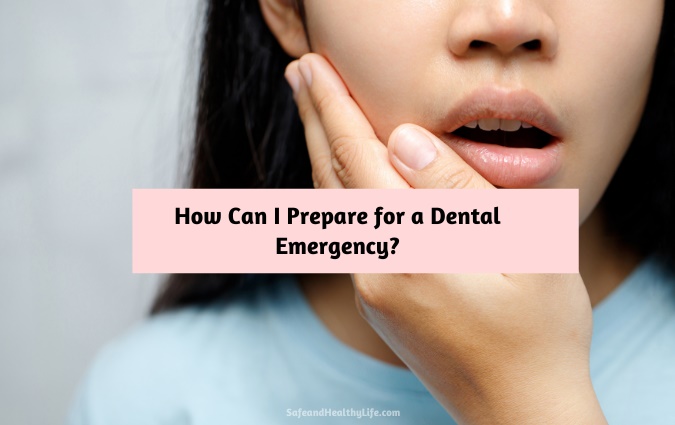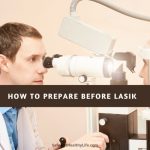
Many incidents take us by surprise. You never know whether the experience will be pleasant or agonizing. Just like accidents, you need to prepare yourself for dental emergencies.
Whether you bang your teeth against a swinging door, have a fall, or get involved in an unfortunate accident, visiting your emergency dentist in Texas requires certain preparations.
While you struggle to bear the pain or control bleeding, following the right action path can help your dentist ease your suffering.
Often, failing to follow the right course of action after hurting your teeth or soft tissues in your mouth leads to complications.
Would you love compromising your smile due to such avoidable mistakes?
While you call Teledentistry for emergency dental treatment, make sure to prepare yourself as you brace up to meet the doctor.
In this article, we will discuss the right course of action during a dental emergency.
Preparing for your visit to the emergency dentist
Amidst your dental pain, trauma, and agony, situations might turn chaotic if you aren’t prepared while visiting your emergency dentist.
For instance, forgetting to carry your knocked-off tooth is a common mistake. Try to stay calm and follow the guidelines we have provided to you.
1. Knocked off tooth
Following your accident or fall, you might find your tooth displaced or broken with profuse bleeding. Try to find the tooth (if lost) and make sure it remains moist by the time you reach the emergency dentist.
Hold the crown of the tooth and wash it gently. Try to preserve it in saliva inside your mouth, or use your tongue to place it back into the socket.
Don’t touch the root, as it might damage the tooth. Alternatively, stack it between your cheeks and gums.
Also, you can soak the loose tooth in a cup of milk for preservation. If you act swiftly enough, professional emergency dentists can reattach the tooth to the original socket.
2. Biting your tongue or lip
This happens to all of us sometime or the other. Whether you are in a hurry or have been nibbling food carelessly, you tend to bite your lip or tongue. This can result in severe damage to the soft tissue inside your mouth.
Firstly, use clean water to swish off the food. Now apply a cold compress to the affected area over your cheek. If the bleeding continues, make sure to see an emergency dentist and get the necessary medicines prescribed. Related.
3. Cracked teeth
If you happen to fracture, break, or crack your tooth, it becomes susceptible to infection. To prevent this situation from aggravating, cleanse the area by gargling water.
You can also apply a cold compress on the external side of your cheek, directly over the damaged tooth.
Doctors recommend using a saline solution to gargle so that the area doesn’t get infected by the time you see the doctor.
4. Severe toothaches
Toothaches can cause severe pain and land you in trauma. To determine the reason for the pain, make sure to visit an emergency dentist.
To ensure the dentist can examine your oral cavity properly, use saline water to swish your mouth. Once you clean your oral cavity, remove the remaining food debris using floss.
Remember, food leftovers can intensify your pain.
If you have a fever along with toothache, you might well have a dental infection. Don’t delay seeing your emergency dentist, as the infection can also spread to your gums.
5. Jaw dislocation
Applying a cold compress to the painful area is the first thing you should do following a jaw dislocation. By the time your emergency dentist examines the area, you can reduce the pain to some extent.
However, if you don’t find an emergency dentist, you may proceed to the nearest hospital and get treated in the emergency room.
Prompt medical treatment is necessary in these cases, and you cannot afford to wait for too long.
How can you control bleeding from your gums and teeth?
Dental trauma often leads to profuse bleeding that refuses to stop. In case your tooth gets knocked off, or you happen to bite the soft tissues inside your mouth, intense bleeding might accompany the pain.
In these situations, you may use gauze and apply slight pressure on the source of the blood. This might help you control the bleeding as you reach out to the emergency dentist.
In case you find that excessive bleeding can be fatal, don’t hesitate to visit the nearest emergency room. Some situations call for your discretion or presence of mind, and this is one of those.
What to do while reaching out to your emergency dentist?
In case the situation isn’t life-threatening, your emergency dentist would recommend you take the prescribed medicines.
Considering the pain and trauma affecting you, it would be wise not to drive to the chamber yourself. Take a friend or family member who would assist you or drive the car for you.
Always schedule the appointment in advance, even if you find that it isn’t the right time of the day to visit the dentist.
For instance, emergency dentists at Teledentistry are available 24/7 to support you online. Before you seek a physical appointment, simply call the experts and explain the situation to them.
Endnote
Dental emergencies tend to be agonizing most of the time. Staying prepared for such emergencies would help mitigate stress during trying moments.
Also, keep the medical kit with gauze, antibiotics, and cotton handy. Being prompt while taking your countermeasures following a dental emergency can prevent further complexities.
Also, your dentist would be able to diagnose the area before the situation goes beyond their control.
Established dental clinics like Teledentistry are reputed for their spontaneous response to patients.
Even when you aren’t able to visit the doctor personally due to time constraints, the dentists will send the prescription directly to a nearby pharmacy.
This ensures that you can administer the prescribed drugs at the right time. Later, you can follow up on the appointment, being prepared for emergency dental care.
About The Author:
Anne Kamwila is a freelance content writer and a digital marketer. She is passionate to write about health, technology, and business-related guides, news, and books.




